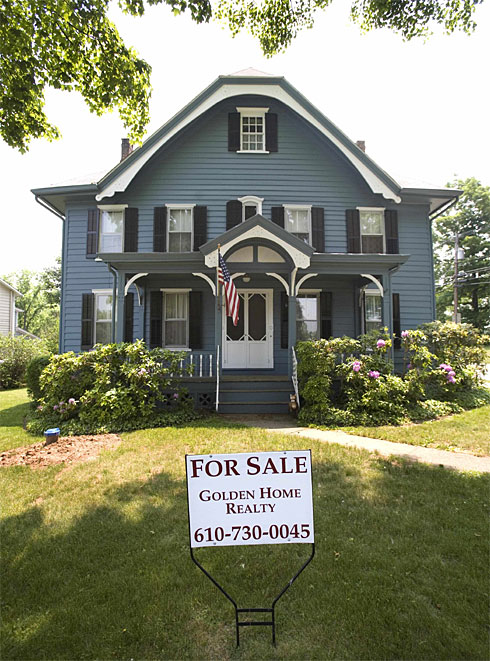Noelle Knox
USA Today

Higher mortgage rates will be a drag on home sales and prices because higher rates make homes more expensive.
Would-be home buyers, such as James Aberle, have watched with angst as mortgage rates have jumped nearly 10% in just five weeks. The average rate on a 30-year fixed mortgage hit 6.74% this week, Freddie Mac said Thursday, its highest in nearly a year.
The spike in rates — which averaged just 6.15% in mid-May — could have a whiplash effect on the market if they stay high. In the short term, it could force fence-sitting buyers to make an offer. Mortgage applications for purchases, for instance, rose 7% last week. But over the long term, higher rates are likely to depress home sales and prices by making mortgages too expensive for some would-be buyers.
That’s especially true in such states as California, Arizona and Florida, where prices are out of reach for many working families.
“My fingers are hurting from keeping them crossed, hoping the mortgage rates go back down,” says Aberle, 39, a marketing manager. Last weekend, he found a home in Phoenix he wants to buy, but he isn’t allowed to lock in a mortgage rate until next week.
The surge in rates means someone who bought a median-price U.S. home of about $220,000 last week, with a 30-year fixed-rate loan and a 10% down payment, would face a monthly payment $77 higher than someone who bought the same home a month earlier, according to an analysis by Genworth Financial for USA TODAY.
After talking with a broker in Highland Ranch, Colo., this week, Tammy and Cecil Lee decided they can’t afford to buy their first home now. “Part of it is interest rates,” says Tammy, 43. “It just isn’t feasible, and it’s frustrating.”
For each half-point increase in rates, up to 240,000 families in California can no longer afford the state’s median-price home (at $597,640), a 2005 study by the California Association of Realtors found.
“Interest rates have gone up more strongly and more quickly than we had anticipated,” said Frank Nothaft, Freddie Mac’s chief economist. Where they go from here, “depends on upcoming economic news, but I see interest rates moving within a range of no less than 61/2 and as high as 67/8.”
Nothaft largely blames rising international interest rates, which have put pressure on U.S. rates to go higher to attract investors.
Zooming interest rates also make it more expensive for those with adjustable-rate mortgages to refinance into fixed-rate loans.
“Any increase (in rates) will be bringing more people into the danger zone,” says Susan Wachter, a professor of real estate at the University of Pennsylvania.
Buyers who got a typical ARM in June 2005 and face their first payment adjustment now are in for a jolt. On a median-price home, their payment would soar about 40% to $1,929 a month, Genworth found.

